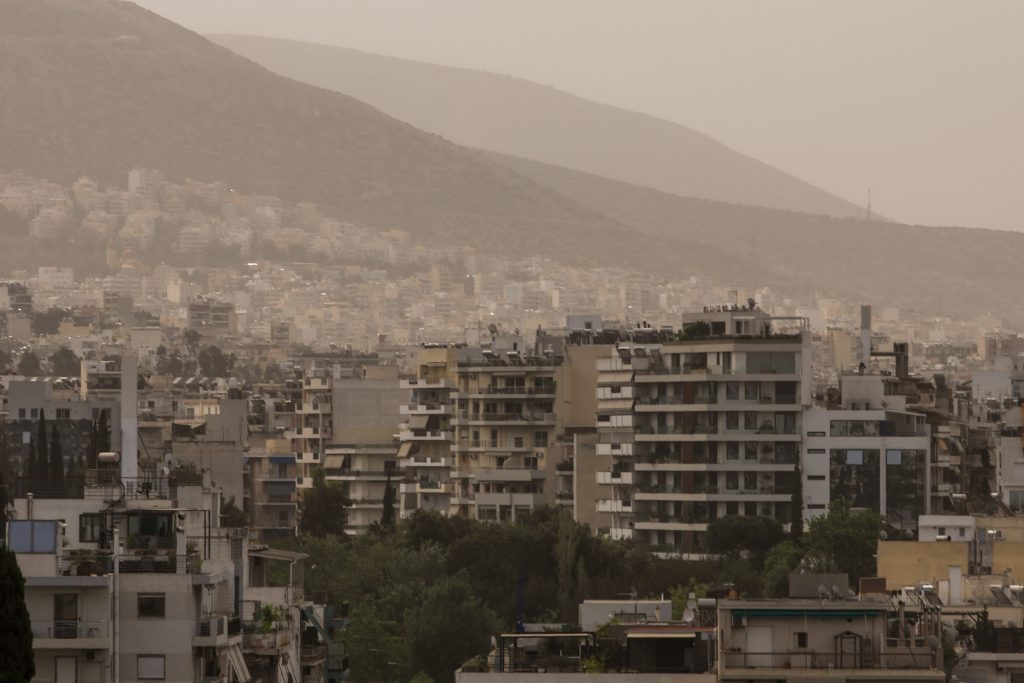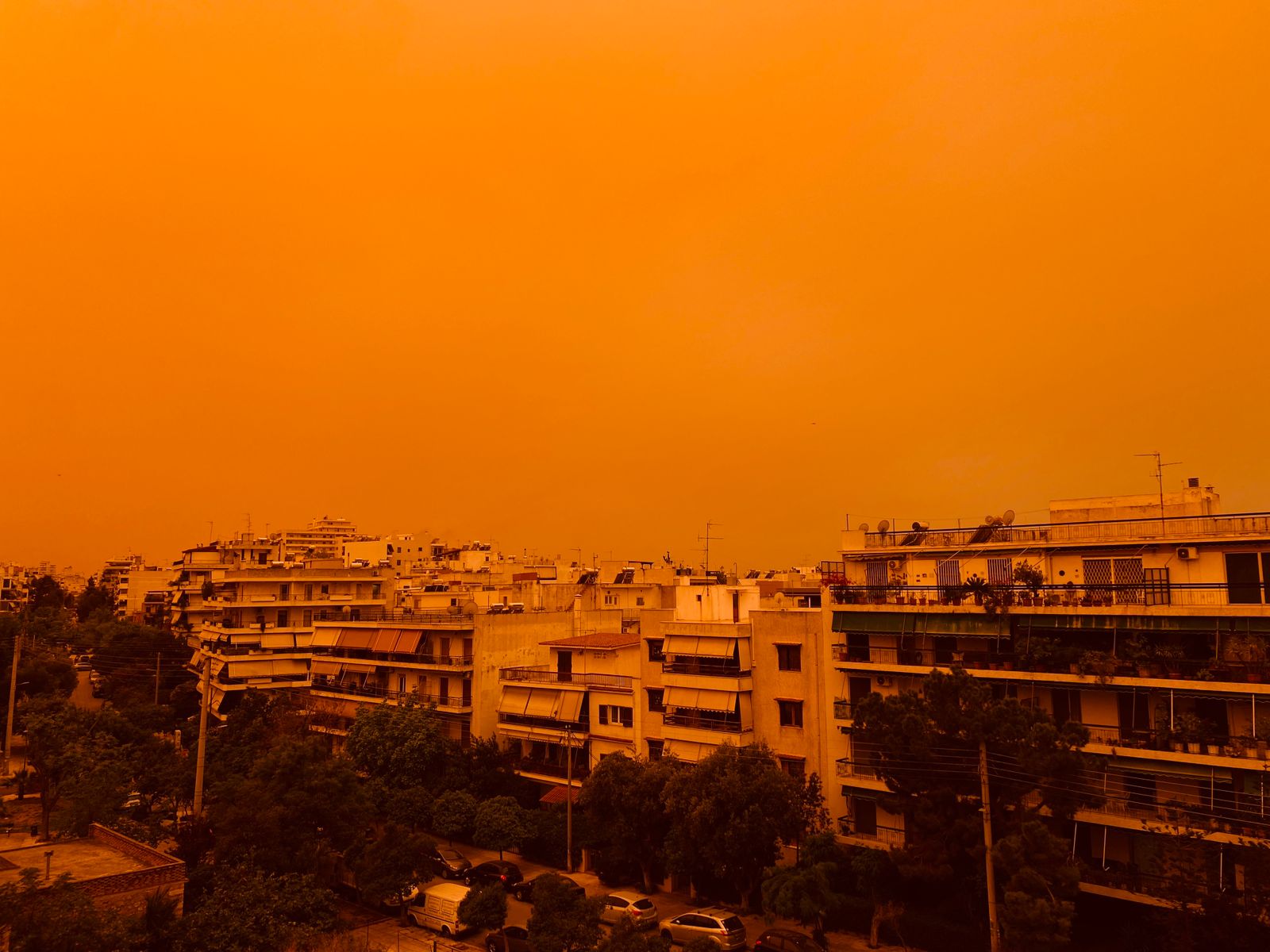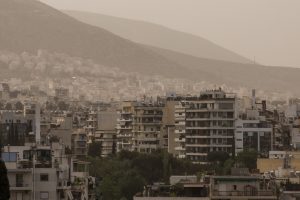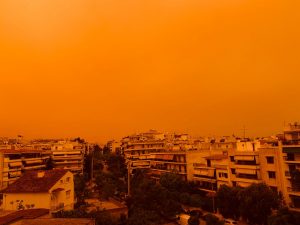High levels of African dust are forecast for much of Greece over the next few days accompanied by a mini heat wave expected to create stifling conditions.
According to meteorologists, the new wave of African dust combined with the high temperatures for the season may create a smog-like effect impacting air quality and reducing visibility. Showers are also expected. Mostly affected by the smog are vulnerable groups living in in urban centers.
Health authorities in Greece are warning individuals with high-risk conditions, including heart and respiratory ailments to remain indoors and wear masks.
Possible symptoms from exposure to African dust include eye irritation (itching, watery eyes, tears), irritation of the upper and lower respiratory system (runny nose, sneezing, sore throat, difficulty breathing or shortness of breath, persistent cough, chest pain), allergic reactions (redness of the skin, itching).
Last week, the Greek health ministry and the country’s National Public Health Organization (EODY) issued guidelines advising people suffering from Chronic Obstructive Pulmonary Disease (COPD) and asthma as well as infants, children, and seniors over 65 to avoid going outdoors.
Residents and visitors should monitor announcements from health authorities.
The last dust storm in Athens made international news due to the dystopian orange hue created in the sky. The phenomenon is caused by massive dust waves traveling via southerly winds from the Sahara Desert north across the Mediterranean.







